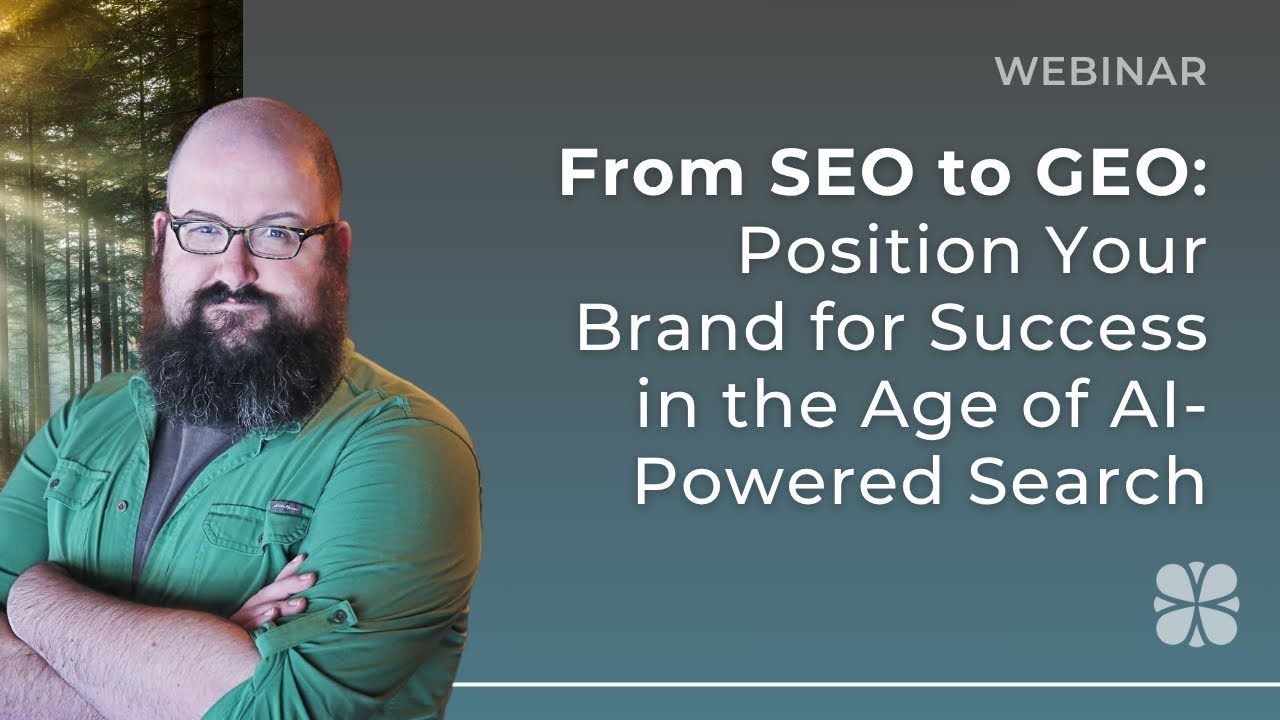In the webinar “From SEO to GEO,” Alex Boston explains that while AI-powered search tools are transforming how users find information, traditional SEO remains vital for driving quality traffic, with new strategies like generative engine optimization (GEO) focusing on technical site health and metadata to enhance AI visibility. He emphasizes adapting to evolving search features, optimizing for diverse modalities, and maintaining authoritative content to succeed in the AI-driven search landscape without abandoning core digital marketing principles.
In the webinar “From SEO to GEO: Position Your Brand for Success in the Age of AI-Powered Search,” Alex Boston, a strategist and SEO content lead at Northwoods, addresses the evolving landscape of search engine optimization (SEO) amid the rise of AI-powered search tools and large language models (LLMs). He begins by debunking the myth that SEO is dead, emphasizing that despite the growing presence of AI search tools like ChatGPT, Google remains dominant with 90% of search traffic. SEO continues to be crucial for driving high-quality, intent-driven traffic, and optimizing for Google is still the most effective strategy for visibility and conversions.
Alex highlights how search engine results pages (SERPs) are changing, with traditional organic rankings sharing space with AI-curated features such as AI overviews and “People Also Ask” sections. These new elements reduce the traffic share of the top organic result but also create fresh opportunities for visibility. He introduces the concept of a “zero-click future,” where search engines aim to answer queries directly on the results page, potentially reducing website visits. While this future is distant, marketers should prepare by optimizing content to appear in diverse search modalities, including AI tools and voice search.
The presentation introduces generative engine optimization (GEO) as an emerging practice that builds on SEO fundamentals but also requires attention to technical site health and metadata. LLMs primarily interact with backend site data rather than live page content, making structured data markup (schema.org) and metadata critical for AI visibility. Alex advises maintaining high-quality, authoritative content and technical site optimization to ensure discoverability across both traditional search engines and AI-powered platforms. He also discusses the challenges of limited visibility into how users find sites through AI tools and the importance of tracking referral traffic from these sources.
Alex explains how LLMs understand content through vector embeddings, mapping topics and their relationships in a multidimensional space to interpret context. This understanding underscores the need for comprehensive content coverage around core topics and related themes. Tools like SEMrush and SparkToro can help identify content gaps and opportunities by analyzing these topic relationships. Despite the hype around AI, Alex stresses the importance of viewing LLMs as sophisticated data models rather than true intelligence, encouraging marketers to focus on practical, data-driven strategies rather than speculation.
In conclusion, Alex reiterates that SEO is not obsolete but evolving alongside AI-powered search. He recommends starting GEO efforts with technical audits to improve site metadata and structure, while continuing to produce high-quality, user-focused content. Embracing new search features, optimizing for voice queries, and building brand authority remain essential. The session closes with a Q&A addressing paid advertising’s role alongside AI search, the potential for ads in AI responses, and practical steps for overwhelmed marketers. Overall, the key takeaway is to adapt SEO practices to the changing search environment by integrating AI considerations without abandoning foundational digital marketing principles.
